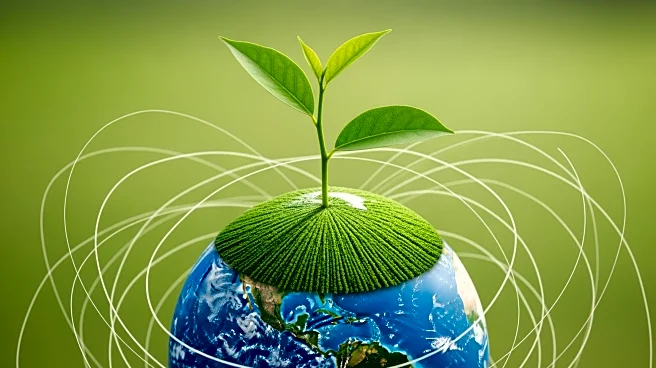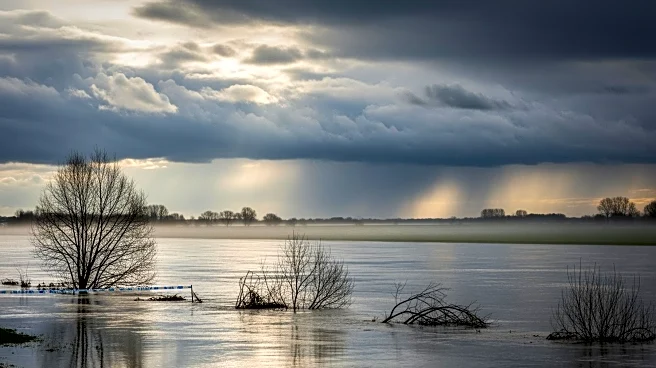What's Happening?
The COP30 climate conference in Belém is focusing on agriculture as a key component in addressing climate change. The conference emphasizes the need for adaptation strategies, innovations, and policy frameworks
to support climate-resilient agriculture. FiBL, a global network working with farmers, scientists, and politicians, is presenting research on organic farming and agroecological approaches that enhance soil fertility, reduce emissions, and increase productivity. These strategies are seen as vital for mitigating the impacts of climate change on agriculture.
Why It's Important?
Agriculture plays a dual role in climate change, being both affected by and contributing to greenhouse gas emissions. The COP30 conference's focus on agriculture highlights the sector's potential to be part of the solution through sustainable practices. By adopting organic and agroecological methods, agriculture can improve resilience, reduce emissions, and contribute to global food security. This approach aligns with broader efforts to integrate environmental sustainability into agricultural practices.
What's Next?
The outcomes of COP30 could lead to increased global adoption of organic and agroecological strategies, influencing policy and practice in agriculture. The conference provides a platform for stakeholders to collaborate on innovative solutions, potentially driving significant changes in how agriculture is managed in the face of climate challenges.










